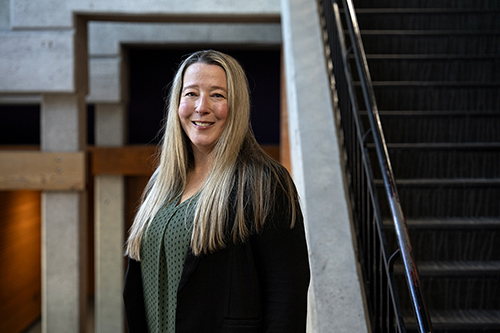WSU paramedic professor contributes to new EMS treatment research
OGDEN, Utah — Results of a recent study conducted by a team of researchers, including Weber State University’s paramedic program director, could improve outcomes for people suffering uncontrolled atrial fibrillation.
Published in the journal Prehospital Emergency Care, the study found that patients who are treated for atrial fibrillation, or AFib, with rapid ventricular response in the field resulted in better heart rate control (41.0% vs. 18.2%), higher likelihood of being discharged from the emergency department rather than being admitted (37.9% vs. 34.0%), and a decrease in overall death (4.3% vs. 6.7%). 
WSU assistant professor Christine O’Neil was one of seven researchers who examined data from electronic patient reports across the country for the study. Paramedics have often been encouraged not to treat patients with rapid AFib before they arrive at the hospital due to the increased risks for strokes and blood clots, she said.
“We were able to pull data from agencies that do treat AFib in the field and say this is actually beneficial for these patients that have had their heart rate lowered by paramedics,” O’Neil said. “It reduces the amount of time they stay in the hospital and it actually reduces the mortality rate.”
Atrial fibrillation is the most common abnormal heart rhythm diagnosed in the United States, contributing to up 158,000 deaths per year. It’s caused by an irregular electrical impulse that starts in the upper chambers of the heart and transfers to the lower chambers in the form of an irregular heartbeat.
With more access to electronic records and patient outcome data, there are more opportunities for research in the emergency medical services realm, O’Neil said.
“It’s a really cool time to be in EMS research because there’s so much more information available to us,” O’Neil said. “We can look at some of the things we’re doing and see where we can make adjustments to improve patient care and patient outcomes. Because that’s really why we do what we do.”
For more about the paramedic program, visit Weber State’s Department of Emergency Health’s website.
Jessica Kokesh, Marketing & Communications
801-626-7316, jessicakokesh@weber.edu
- Contact:
Bryan Magaña, public relations director
801-626-7948, bryanmagana@weber.edu